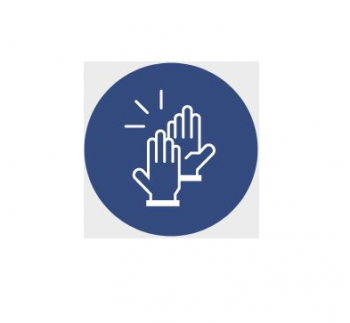How do physicians create opportunities to learn from each other when everyone’s schedules are busy with patient care? Occasions to ‘bump into’ one another are fewer now than in the past, when different groups of physicians would more regularly gather in the Doctors’ Lounge between cases. Dr. Matthew Billinghurst, a Victoria-based hospitalist, wanted to bring specialists into the Hospitalist Department Rounds to create opportunities to build knowledge and improve communication between these groups. The aims of the project were three-fold: 1) to improve communication and increase collegiality between hospitalists and specialists, 2) to improve engagement of hospitalists in continuing medical education, leading to better attendance at the rounds, and 3) to improve the clinical acumen of hospitalists in relation to certain specialized areas of patient care, potentially leading to a more judicious use of investigations (laboratory, diagnostic) and consultation requests.
With funding from the South Island Medical Staff Association, Dr. Billinghurst worked with Julia Porter, Administrative Assistant for the Hospitalist Department, to invite select specialists to present at the rounds once a month. Over the course of the project, 11 specialists from fields as diverse as Geriatric Psychiatry “Antipsychotic Choices for the Elderly”, Emergency Medicine “Physician Burnout”, and Cardiology “Cardiology Potpourri”, presented to the group. As the specialist presentations became a familiar feature of the rounds, hospitalists began proposing topics that they would like to have presented, and would ask on their own initiative if a particular specialist would be interested in presenting.
Bringing specialists into the Hospitalist Rounds has led to more robust relationships between hospitalists and specialists. By providing specialists an opportunity to engage with hospitalists in an informal setting, they often put a face to a voice that they had previously only heard on the telephone. This familiarity will hopefully translate to greater ongoing knowledge sharing between the groups. In the future, the group would like to circulate a short survey to department members to formally evaluate the longer-term benefits of the rounds. They are interested in continuing these collaborative rounds in the future, and as such, are looking into securing funds from other sources.

